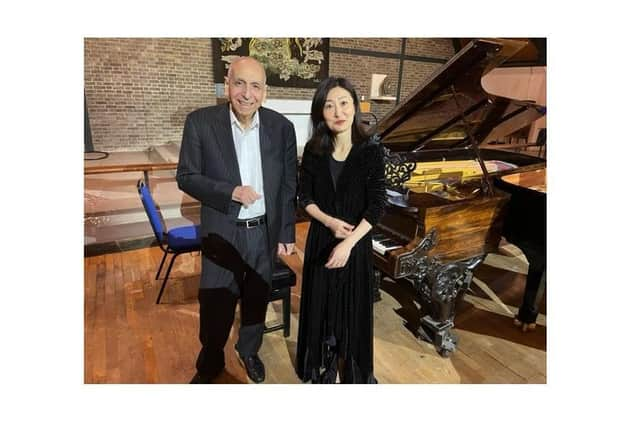Review: Marino Tirimo and Atsuko Kawakami, Chichester Music Society


The Chichester Music Society welcomed back Marino Tirimo and Atsuko Kawakami to the 10 November Concert at the University of Chichester. The two pianists had come last in lockdown a year ago and had played to an empty hall, apart from one lonely Chairman. This time there was an expectant audience, many of whom had heard their last concert on-line and were now looking forward to a special live evening of piano duets. They were not to be disappointed.
The first piece was Fantasia for 4 Hands in F Minor Opus D940 by Schubert. This piece was written for the drawing room rather than the concert hall, but the musicians’ interpretations and performance brought the piece to life in the University Chapel.
Advertisement
Hide AdAdvertisement
Hide AdFor this concert the 19th Century Steinway Fancy D, that had been resurrected and repaired by the University, had been tuned specially for this occasion, as it was a very appropriate instrument for this introductory piece. Both musicians played together for the Schubert but after that they were on separate grand pianos.
The second piece was Variations on a Theme by Haydn Opus 56b [St Anthony Chorale] by Brahms. The Duo drove each variation forward, adapting to the themes of each section, with sensitivity and with virtuosity. The seventh variation, lyrical in style, was a particular success, singing with colourful musicality.
After the interval the programme moved to Argentina and the music of Carlos Guastavino. This composer, although very well-known in his own country, is rarely played here, but this was a well-chosen exploration of 20th Century South American music. The Duo played three short tunes of different tempos, which were inspired by the guitar and the local style of dance rhythms, and the pianists interpreted the music very effectively so that one felt completely transported across the Atlantic to South America.
The final piece was Rapsodie Espagnole by Ravel. This is a challenging piece, and the Duo gave a performance which, emphasising the Spanish influence, was full of texture and energy. The finale was a tour de force and was so well received by the audience that it led to two encores from Tchaikovsky’s Nutcracker Suite.